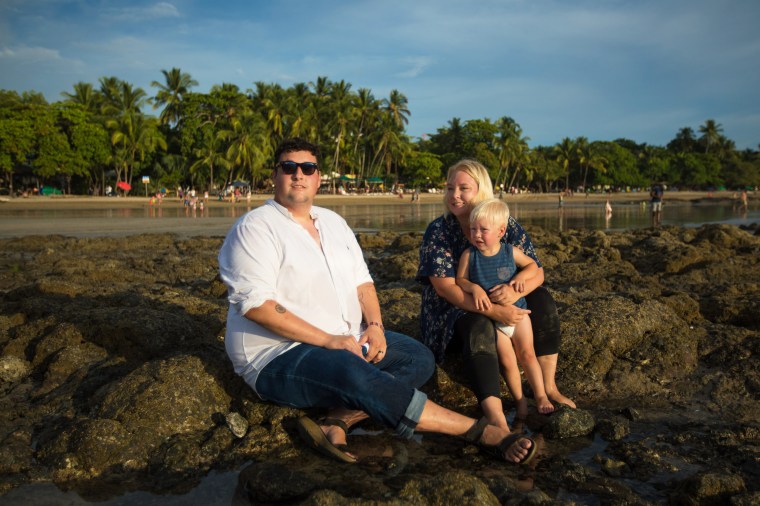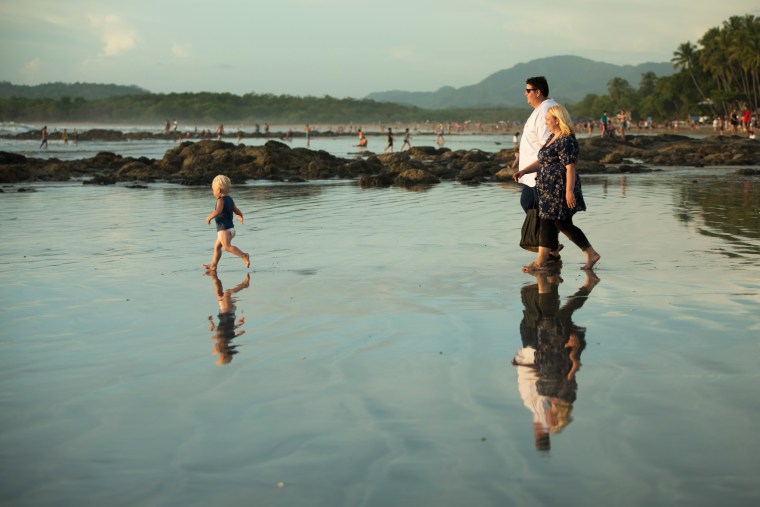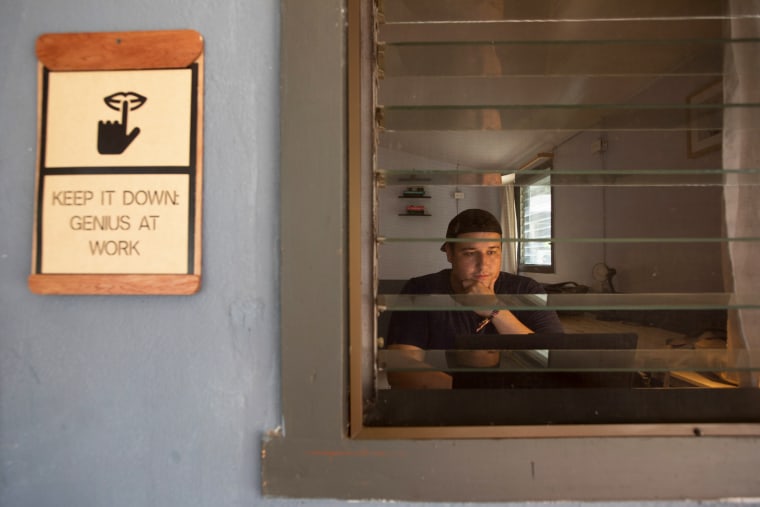NewsVine_Mariyam
Platinum Member
Unlike many people, I haven't exactly been loo king forward to returning to "normal" upon the end of the pandemic because a lot of things that we did was out of necessity. Now that society has seen first hand that there can be better ways of doing things, apparently I'm not the only one who isn't chomping at the bit to get back into the rat race.
Fortunately, the team I'm currently working with was 100% remote prior to us having ever heard of COVID with members in 5 different states and 4 time zones.
Fortunately, the team I'm currently working with was 100% remote prior to us having ever heard of COVID with members in 5 different states and 4 time zones.
As office life beckons again, the pandemic's digital nomads weigh benefits of a return
Covid-19 opened up the possibility of a nomadic lifestyle to entirely new groups of people. Now, many of them don't want to go back.03:45 /06:30
July 6, 2021, 3:15 AM PDTBy Elaina PattonFor the past year, Jeromy Sonne has been on the road with his wife, Kelsey, and their 2-year-old son, Emmett, living and working in short-term home rentals from Airbnb.Sonne, 31, founder of marketing startup Decibel, was working remotely from rural South Dakota when the pandemic hit. After a few months of lockdown, the Sonnes found that being cooped up at home in a small town wasn't working, so they put their belongings in storage and started traveling. They began in Utah, in Provo and then Salt Lake City, and then headed to Vermont, Texas, Hawaii and Montana. Most recently, they extended their travel abroad to Panama and Costa Rica, where they're currently living.Jeromy Sonne, his wife Kelsey and their 2-year-old son Emmett have lived on the road for the last year. They arrived in Costa Rica on June 15 and will stay in Tamarindo for six weeks.Monica Quesada Cordero / for NBC News
They have stayed in locations for four to six weeks on average, which allows them to get to know the places and take advantage of monthly discounts. Usually, they book two bedrooms, which makes traveling with a toddler on a sensitive sleep schedule more manageable, even if it's more expensive. But so far they have kept expenses at pre-pandemic levels, which includes average monthly lodging of under $2,500."I think there's a misconception among some people that you have to have this huge amount of money to be able to pull this off," Sonne said.Kelsey recently left her job to handle all of the travel arrangements and manage the family's finances full time, which has been key to the longevity of their travel. On top of budgeting, she keeps their expenses down by pinpointing affordable destinations, finding deals and making use of points and other travel hacks, which make it possible for them to live primarily off one salary.The Sonnes want parents to know they don't have to be left out of nomadic living, especially given the relative convenience of furnished accommodations.Jeromy Sonne, Kelsey Sonne, and their son Emmett walk on the beach in Tamarindo, Costa Rica.Monica Quesada Cordero / for NBC News
"All of this is possible because of the Airbnbs and Vrbos of the world," Jeromy said. "I don't think we could really pull it off without those services, because we're not in a situation where we could 'hostel it.'"How long they will continue living out of a few suitcases ultimately comes down to their son. They are eyeing an end-date of late 2022 or early 2023, when he'll start preschool. In the meantime, they will be on the move, trying to see as much as they can in a few years and with a toddler in tow.
Work-life flexibility
Before the pandemic, the term "virtual nomad" applied to a privileged few who had found a way to finance perpetual travel — and seemed to do so effortlessly. But when Covid-19 forced employers to go remote, it opened up the possibility of a nomadic lifestyle to entirely new groups of people.Now, despite employers setting dates for full, in-person returns, many who took advantage don't want to go back."People have experienced the power of work-life flexibility, enhancing the quality of their lives, their satisfaction," said Tsedal Neeley, a professor at Harvard Business School and author of the book "Remote Work Revolution: Succeeding From Anywhere."Jeromy Sonne works from a CoWork space at Selina in Tamarindo.Monica Quesada Cordero / for NBC News
Different from what Neeley calls the "forever unattainable" work-life balance, this newfound flexibility has allowed people to segment the day between work and life in a way that works best for them. In very practical terms, that means signing on for work, attending meetings and making deadlines but using off- or between-hours in a way that is more fulfilling — whether that means replacing morning commutes with a walk outside or sharing a meal with a spouse instead of eating alone at a desk."The digital nomad has the ultimate work-life flexibility," Neeley said. They can spend their off hours pursuing changes of scenery, warmer weather, winter sports, new cuisines or, simply, a place to decompress.Continued...
